Paul Newman: Hollywood legend was so insecure, says daughter
- Published
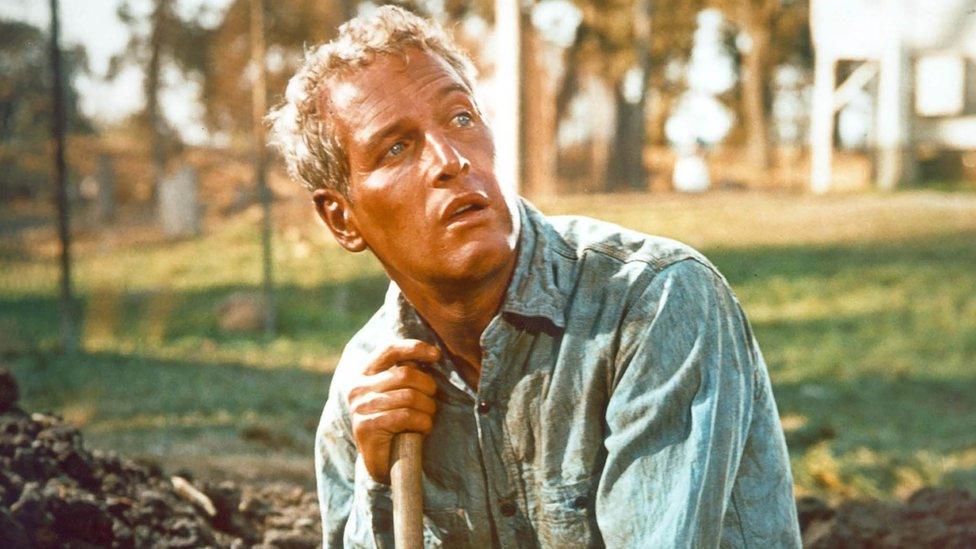
Paul Newman's films included 1967's film Cool Hand Luke
"He wanted to dispel the fairy tale," Clea Newman Soderlund says about her father Paul Newman's decision to embark on writing a memoir.
It was 1986 and Newman had been one of the most famous movie stars in the world for three decades, starring in films including Butch Cassidy and the Sundance Kid, The Sting and The Hustler.
He was known for his brilliant blue eyes, boyish charm and seemingly idyllic 50-year marriage to the equally talented actress Joanne Woodward.
But not everything was what it seemed. "He wanted to dispel the perfection that things were just great," Soderlund, the youngest of the actor's five daughters, tells the BBC. "Nobody's life is like that."
So that is why, in his 60s, Newman decided to collaborate on a memoir with his friend, the screenwriter Stewart Stern. The two men talked for five years about Newman's childhood, career, family and fame.
"This was a very pivotal time for him in his life," explains Soderlund. "He was doing a lot of soul searching."
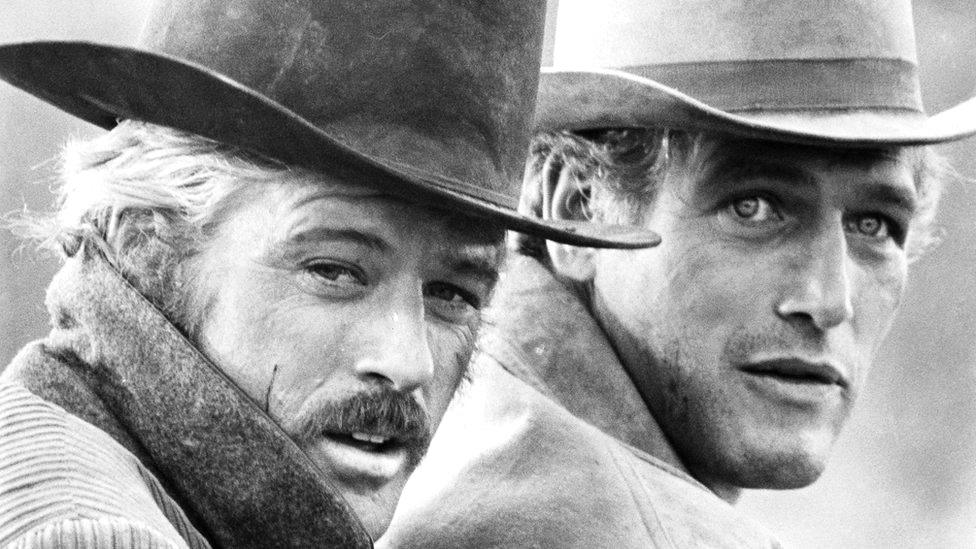
Robert Redford (left) and Paul Newman starred in films including Butch Cassidy and the Sundance Kid
But by 1991, Newman and Stern were overwhelmed with the amount of material and gave up on the process.
Newman died in 2008, at the age of 83. Stern died in 2015.
No-one knew what had happened to the thousands of pages of interview transcripts. There was even a rumour that they had been burnt in a bonfire.
Then two years ago, they were discovered in a family storage unit, and have now been edited into a new book, The Extraordinary Life of an Ordinary Man.
It paints a candid picture of a tortured star dogged by self-doubt, who reflects on his alcoholic father, his possessive mother, the first marriage he abandoned when he met Woodward, his own failures as a father, and his excessive drinking.
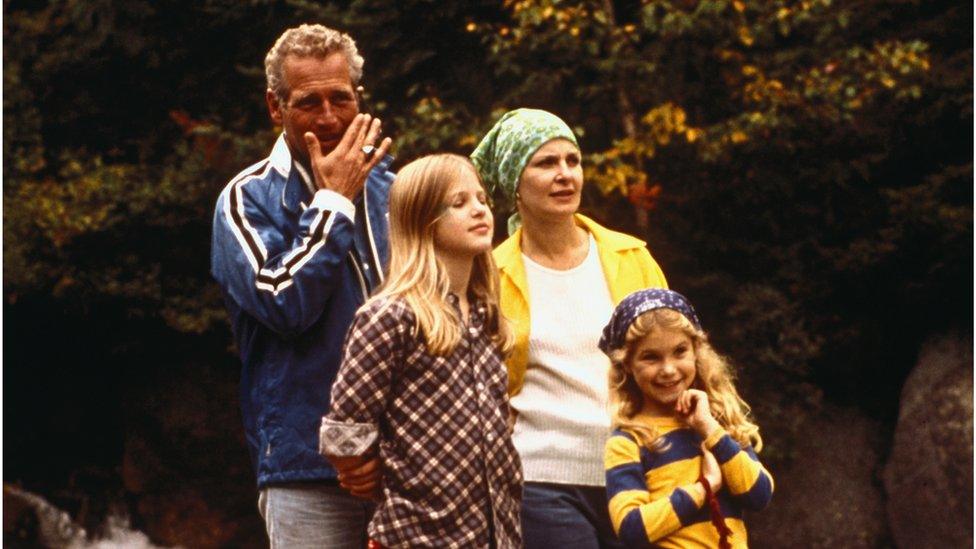
Newman and wife Joanne Woodward with their daughters Melissa, 13, and Clea, nine, in 1974
Reading the manuscripts was difficult for Newman's daughter, who found out "a lot" about her father that she did not know. "It's very raw," she says.
So what surprised her most?
"He was so insecure," she says. "I was born in 1965. By the time I came around, he was kind of bigger than life, because he was so famous at that time and later. So it was a whole different perspective.
"I struggled to understand how I didn't know how he could see himself so differently from the way his children and family felt about him, because he seemed to be so confident about everything.
"I knew that he never felt probably as good about his work as everybody else did, but I think I was surprised at how harshly he criticised himself."
'Always anxious'
At one point in the book, Newman says he is "always anxious" about "not being good enough".
And he wonders how much of his career is down to him or his appearance.
The actor explains in the memoir: "It is difficult for a person like me, who has always had a terrible sinking feeling in the pit of his stomach that his success comes simply from being fortunate enough to be born looking a certain way."
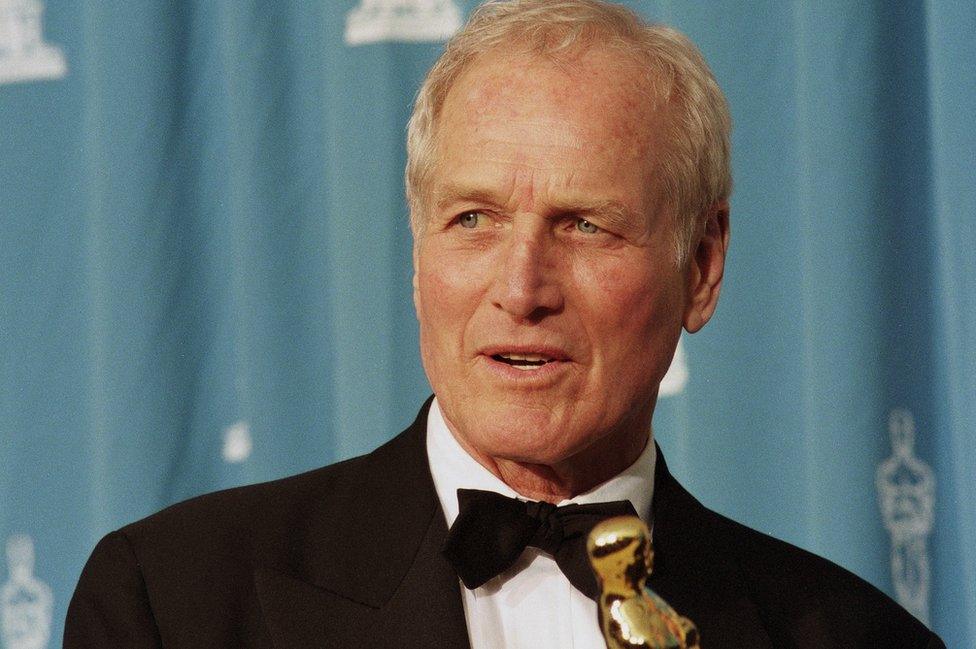
He won an Oscar in 1987 for The Color of Money, and had nine more nominations between 1959 and 2003
Soderlund says her father wanted to be treated as so much more than good-looking.
"It was kind of heartbreaking to him that it felt like, no matter how hard he worked, he wasn't going to get anywhere: meaning he wouldn't get past that pretty face and those beautiful eyes."
In the 1970s, Newman formed a highly successful on-screen relationship with Robert Redford. They made Butch Cassidy and the Sundance Kid and The Sting, and for many years searched for the right script to make another film together.
But the book reveals the pair were not really friends off screen at that time. "You can't depend on Redford," says Newman. "You're never sure he's going to be there. That's simply discourteous."
Soderlund thinks any tension was down to different ways of working.
"My father was very much a stickler for timeliness and Bob, that was never really his strength.
"It was hard work for dad. He worked very hard at it because he wanted to be good and he wanted to be successful and Bob was more of a free spirit."
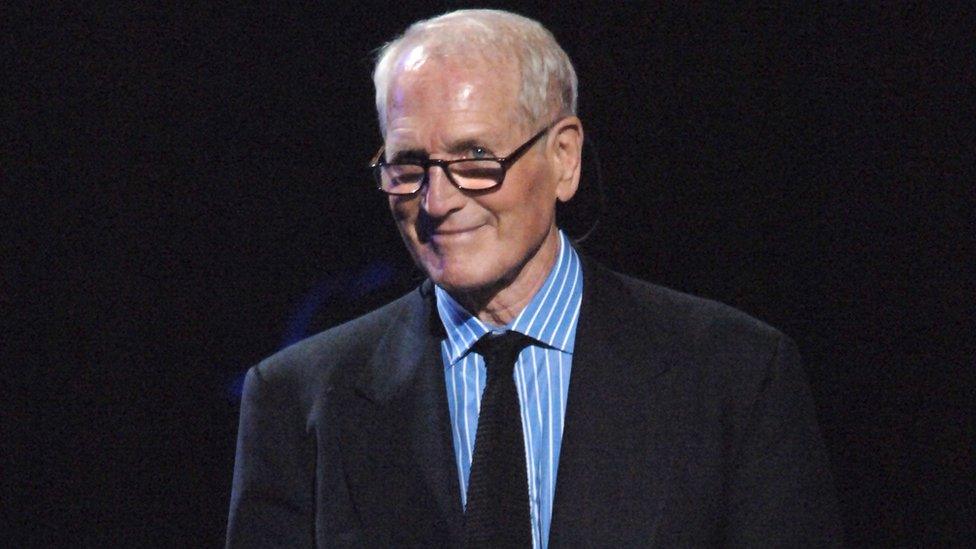
Newman's daughter said he "felt much better about himself as he got older"
In the book, Newman also hints at strains in his relationship with Woodward. He famously once said of his marriage: "I have steak at home. Why should I go out for hamburger?"
Yet there are suggestions in the memoir of betrayals. "We've had our problems," he tells a friend. "This hasn't all been a bed of roses."
"Oh, there was tension," confirms Soderlund. "I'm sure it wasn't a cake-walk being married to him.
"But I think the impressive thing is that they worked really hard to stay together. I give them a lot of credit that they did manage to get through a lot of really hard times and come out on the other end stronger and better.
"My father wouldn't take his last breath until my mother was holding him," she reveals.
As a parent, Newman is also critical of himself, declaring: "I don't have a gift for fathering.
"I could have been more consistent with my children, I could have been more understanding. I could have been more patient."
His son Scott died from an accidental drugs and alcohol overdose in 1978.
'Difficult decision'
Soderlund remembers a dad who "worked a lot, so he was gone a lot".
She adds: "When he was home, he was a big kid. This was when I was little. He loved to play with you and throw you into the pool. He was fun. But he wasn't consistent."
In the decades after the conversations were recorded, Soderlund says Newman "worked hard on himself" and "felt much better about himself as he got older".
Deciding to publish the memoir, filled with so many intimate revelations and startling insights, was "a difficult decision", she says.
But ultimately she and her sisters decided they were following his wish. "It's something that he wanted."
As Newman himself says: "I want to leave some kind of record that sets things straight, pokes holes in the mythology that's sprung up around me, destroys some of the legends, and keeps the piranhas off.
"Something that documents the time I was on this planet with some kind of accuracy."
Related topics
- Published8 March 2018
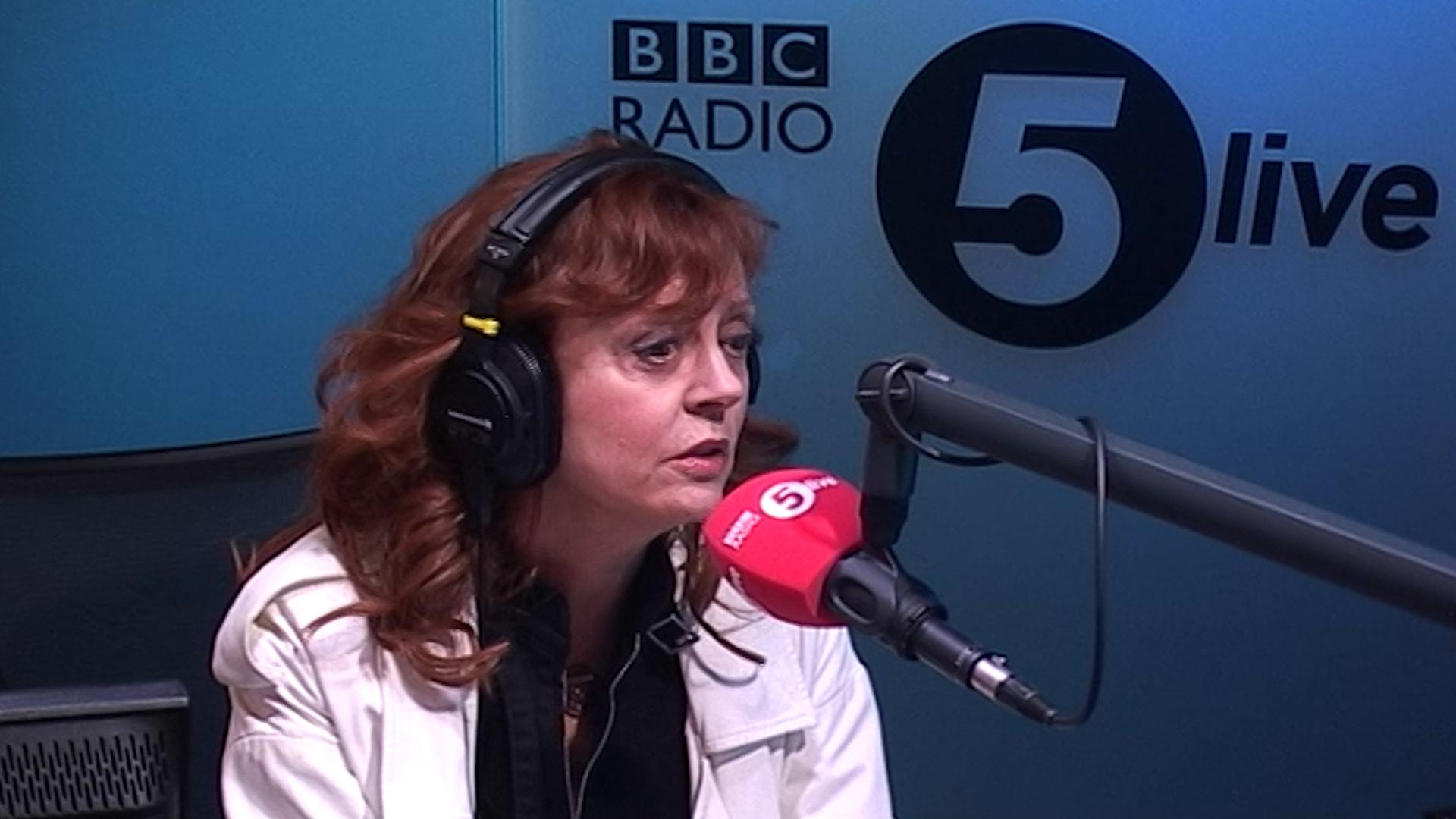
- Published28 October 2017
